*Warning: the information in this article goes against and criticizes the teachings of Alcoholics Anonymous (AA) and any other group that encourages participants to identify as a lifelong addict. If you believe your abstinence depends on the AA, you may want to skip this article. Conversely, if you have questions about the AA’s tactics and don’t want to be an alcoholic for life, this article may be perfect for you.
How old were you when you learned that alcoholism is a lifelong condition? When did you find out that alcoholics drink to temporarily alleviate their problems or escape their thoughts – was it before or after you tried your first drink?
When did you first find out that drinking alcohol was ‘fun’? If you really think about it, it was years before you had that first drink.
When did you decide that alcohol tasted good? Think back to that very first sip of alcohol you ever tried… how was it? Let me hazard a guess – it tasted disgusting, didn’t it? That’s because just like every human that has ever walked the planet, your body instinctively repels alcohol. It’s a poison.
You can’t become an alcoholic until you’ve built up a physical and mental tolerance to the effects of alcohol. And, as we’ll get into, you wouldn’t attempt to drink alcohol regardless of your mental state unless you already had preconceived notions of what to expect.
Most of us go through incredible hardships in the early years of drinking, all in the name of building a tolerance and being able to join in with the crowd. Then, if we’re unfortunate enough to fall into the trap of addiction, we’re told that alcoholism is in our genes, that there’s no getting rid of it, and that managing it will require a lifelong, agonizing effort on which we’ll depend on groups like the AA for help indefinitely.
Fortunately, alcoholism does not need to be a lifelong disease. Of course, everybody drinks for different reasons. What works for some may not work for others. But from personal experience, I know that the lessons of groups like the AA can be dangerous. If that’s true for me, it’s bound to be true for other people. Our experiences may make us unique, but we’re still the same animal.
Thought Experiment
Imagine you were born into a tribe that had zero contact with the outside world. Having spent all your life in the rainforest, you have no idea about things like careers, industry and mass manufacturing.
Unlike in the ‘civilised’ world, you do everything with the people in your entire tribe. There’s no keeping yourself to yourself in the jungle, nor any such rules as ‘every man for themselves’.
Rather than have the mindset of a completely autonomous individual responsible for your own actions and in competition with those around you, you are completely interdependent on those around you.
You take part in the same rituals at the same time. You take part in the same hunts and same tasks at the settlement. As there’s only a few dozen people in your tribe – and they’re the only people you’ll ever meet – you think very similarly to those around you, sharing many of the same opinions and cultural outlooks.
Not only have you never tried alcohol, but you’ve never even heard of it. Alcohol has never been a part of your tribe’s culture, so there isn’t even a word for it in your language. You’ve never seen movies of teens going wild, nor of ‘proper’ people sipping wine with their little fingers in the air. In fact, the only substance you’ve ever drank is water – you’ve never needed anything else.
One day, while hunting, a storm separates you from your tribe, and you get lost in the rainforest.
After three days, you still haven’t found your tribe. Time is of the essence – you can’t survive on your own.
For three days, you’ve had no water. You’re tired, depressed, dehydrated and alone. At this point, you start to accept your fate – death is just around the corner.
Then, you stumble on a bottle of clear liquid – hallelujah! You’ve never seen a bottle like this before, but it’s clearly been made by humans. It has writing and symbols all over it – it’s obviously a drink.
Of course, you can’t read the label that says ‘Vodka’. So, literally dying, you take a great big swig of this potentially life-saving drink.
With no preconceived notions whatsoever of what alcohol is or does, what do you do next?
After your first taste of vodka, do you assume that what you’re drinking is fit for human consumption and may save your life? Or would you assume that you’d just drank poison?
Think back to when you had your first drink. How did it taste? Would you have kept drinking that first drink after the first sip with no idea of what the effects might be?
My Experience with Alcoholism
Before I attempt to undermine established abstinence programmes like the AA, let me give you some background on my own alcoholism.
We might have more in common than you think.
For various reasons, I got into drugs relatively early, starting with cannabis at 14 years old and progressing onto just about everything else by the year after. Looking back, alcoholism began the moment I tried that first drink.
Actually, it was the second attempt that did it.
I first attempted to get drunk on cheap white cider. It was so horrible that I threw it away after one swig. It would be another two years and a lot of cannabis later that I’d try alcohol again, this time in the form of alcopops. Once I’d experienced being drunk and decided it was for me, I carried on drinking until I was 30, with a day off here and there until I was about 24. And any drink containing alcohol became rewarding – taste didn’t matter.
The difference between physical and psychological addiction is arbitrary. For all intents and purposes, I became an alcoholic at 16 years old, even if daily drinking didn’t start then. Although, at the age of 18, I drank two litres of white cider daily for six months as a self-made dare (so cool).
Fast forward to 25 or 26 years old, and I’m now waking up to three double whiskeys on most days because I can’t drink beer fast enough to beat the withdrawal symptoms. My daily intake of alcohol ranges from 10 to 15 pints of lager on top of at least the same number of shots, plus whatever hard drugs I could scrounge (and my daily few grams of weed and 40–60 cigarettes).
It was an awful, miserable way to live with no fun or temporary pain relief whatsoever. But we’ll come back to that.
Shortly before my 30th birthday, I came to the realisation that I needed to do something about my lifestyle lest very seriously risk an early death.
Just to be clear; there was no ‘rock bottom’ event that triggered my eagerness to quit. From the age of 15 to 30, I’d been involved in at least 20 road accidents, been tremendously physically ill, held hostage for the night, suffered drug-induced psychosis, accidentally overdosed twice, technically died once… the list goes on.
The point is – don’t wait for a rock bottom to take action. It may never be enough.
Ultimately, people treating me with pity rather than as a ‘fun-loving’ guy made me want to change. My mask, which I didn’t know I was wearing, had slipped – and I couldn’t deal with it.
So, I quit cold turkey. The physical withdrawal symptoms included uncontrollable shakes, rampant vomiting and mild hallucinations, though it felt no worse than the worst flu you can imagine (does drinking alcohol seem particularly appealing when you’re that sick?). They lasted about three weeks in total, the worst of which subsided after the first week. After a month, I felt amazing and in control, so I had a beer.
And I nose dove straight back into alcoholism – no gradual decline, just right back into hammering 15 pints and 15 shots per day.
Thus, I had my proof; alcoholism is a lifelong genetic condition that requires lifelong management, right?
NO!
The issue I had was assuming that alcoholism was the real problem. I thought that if I could stop drinking, all my other problems would be solved. I had no idea I was in denial about a bag of other deep-seated issues that came long before addiction.
Alcoholism was never the real problem. It was simply a reaction to/symptom of the real problem.
And, ultimately, the real problem was brainwashing.
Alcohol and Its Immense Brainwashing Power
Do advertisers and breweries trick us into believing that alcohol is something that it isn’t? Yes, of course they do. We don’t have time to cover that in this article (a complete book is on the way).
However, our brains are the true culprits of our own conditioning (not that the advertisers help).
From the day we’re born, our brains start filling up with information about alcohol. Long before we ever try our first drink, we already know certain things:
- Drinking is what adults do
- Drinking alcohol is how people celebrate
- Alcohol is perfect for birthdays, weddings, parties and nights out
- Drinking alcohol is how people commiserate
- Alcohol can help during sad times, at funerals, following failures, etc.
- Drinking alcohol is how people make use of their free time
- A few beers is appropriate at casual gatherings
- People drink alcohol because they’re bored
- People drink alcohol because they’re excited
- Alcohol helps people temporarily alleviate stress
- Rockstars and celebrities drink alcohol
- A certain amount of alcohol is ok, but by crossing some arbitrary line, you become a full-blown alcoholic
- Once an alcoholic, always an alcoholic – there’s no going back
Does all that even sound realistic? It’s based on belief, not concrete scientific facts. Is there anything in the world that’s suitable for celebrating, commiserating, boredom, excitement, and stress relief?
A lot of beliefs surrounding alcohol are widely considered to be facts. Seeing through the bullsh#t is a crucial step towards overcoming rather than just managing alcoholism.
The reason we believe the bullsh#t isn’t just because we hear it all on repeat before we ever try our first drink – we further believe it because our peer groups validate all these beliefs. The more validation we receive, the more brainwashed we become.
The Early Days of Drinking
I can only assume that my first few years of drinking were relatively similar to other people’s. I started drinking as a teenager with a big group of friends on the streets. Apparently, we were having the time of our lives. But looking back, I wonder whether we really were having as much fun as we thought, or whether we just told ourselves we were to keep face.
In the first few years of drinking, I – like most people – became incredibly ill and sick countless times. I was taken home by the police, lightly beaten up, mugged and hospitalised. I also fooled around with my friend’s partners, mostly stopped speaking to the ‘boring’ people who didn’t drink, failed my first year of university… the list is endless.
And then there are the people who I drank with – some had their stomachs pumped, others ended up pregnant in their teens, a couple went to prison, and a fair few died before reaching the age of 18.
How were your early days of drinking? Similar stories to ponder?
Think deep and be honest – how many times did you feel uncomfortable when you were drinking back in those early days, before you had a tolerance both for the alcohol itself and the situations that follow its consumption?
This is one area where people’s experiences may differ wildly, but I can now remember vividly the voice in the back of my head that I ignored or fought against back in the early days:
“Why am I doing this? I know I’m going to feel like shit tomorrow. Ar fuck it. I can push through. It’ll be worth it.”
“Are they really going to have another round? I feel sick enough as it is but I’m hardly going to be the party pooper. I’m never the one that goes home first.”
“I’m not sure I even want to go out today, but everybody else is going to be there. I don’t want to miss out. A few drinks is hardly going to hurt – it’s not like I have to get bladdered!”
After a few years, I became so good at fighting against my own feelings and instincts that those thoughts all but disappeared. But they never really disappeared – I just got better at burying them. However, at the end of the day, brainwashing can override your instincts, but your instincts never actually go away.
False Associations
When we’re young, for many people, drinking alcohol is all about gaining social validation. Due to the perceptions of society, the beliefs inadvertently instilled in us through superiors, and the natural pressures of peer acceptance during adolescence, it’s almost guaranteed that we’ll try alcohol under the impression of it being positive in some way. It doesn’t help that we’re naturally hardwired to take risks and push limits as teens.
Nevertheless, most people do not try their first drink because they are depressed – even if they are depressed. It’s mostly concerned with fitting in, having fun and ‘growing up’. Most of us can vividly remember our first drink as if it was a momentous and meaningful occasion – that’s how powerful the brainwashing behind alcohol is. We attach strong emotions to that first experience so that it sticks in our memories forever.
That powerful emotional attachment to alcohol is due to cultural influences, not biological predispositions.
As we become tolerant to the negative effects of alcohol, we gain respect and validation from peers and even superiors, almost like it’s a rite of passage. Before long, for many people, alcohol becomes a staple of any and all social occasions.
Even though the social validation and acceptance is a huge part of what makes drinking so appealing, we often associate alcohol with the positive aspects of our experiences – it’s the common denominator at all social occasions, after all.
Years later, we may forget why we ever started drinking in the first place, now fully convinced that our enjoyment relies on alcohol.
But if you have no choice but to build a tolerance to a poison your body instinctively attempts to reject before you can ‘enjoy’ it, can you really assume that the poison was ever responsible for the happiness it seemed to provide?
Did the pressures of evolution shape humans into a species with something missing that some people, due to their biological makeup, have very little choice but to fill with a poison? It seems unlikely.
Drinking for ‘Happiness’
Eventually, during the peak of my alcoholism, I had come to the conclusion that I drank because I was depressed and anxious. I was depressed and anxious, and I was perfectly aware that plenty of alcoholics drank in order to deal with their depression. It’s a well-known ‘fact’ that alcohol temporarily takes your mind off things.
But does it?
I was not a happy alcoholic, and I haven’t known many alcoholics who were. In fact, I’ve never met a happy alcoholic.
If you’re happy provided you’re intoxicated, why aren’t alcoholics happy all the time?
We’re told alcoholics drink to temporarily forget about their problems. I’m not sure how many one-on-one conversations you’ve had with an alcoholic, but many are more than vocal about their problems. Repeatedly, because they keep forgetting they’ve told you about them.
I’m not judging – I was unknowingly one of those alcoholics. Yet I believed, largely due to the textbooks and generally accepted norms, that alcohol really was at least helping temporarily take my mind off things. On reflection, it did the opposite.
Do we drink to forget about our problems? Or we do drink so that, subconsciously, we don’t forget about our problems? For me, though it was incredibly hard to stomach, there was a lot of truth in the latter.
I did have problems that I didn’t want to forget. Unfortunately, I didn’t even know that I had the problems or what they were.
Why Do We Really Drink?
Everybody has their own unique reasons for drinking. We often start drinking at unhealthy levels to gain a sense of belonging, and then we keep drinking as it becomes the norm at social gatherings. If we associate our fun and happiness with drinking rather than the social occasions, we may begin to drink alone and frequently.
Eventually, we “realise” that we became alcoholics because of mental health conditions like depression or adverse childhood experiences. Or, we assume we’re alcoholics due to genetic predispositions. Either way, by the time we become alcoholics, we believe we need alcohol to cope.
But my own experience tells me that the typical story detailed above is filled with holes. For starters, alcohol is rarely responsible for actually temporarily mitigating inner pain or taking your mind off things.
Actually, alcohol makes mental health conditions much worse; in the long run, sure, but also very often immediately.
There’s no doubt that poor mental health and adverse childhood experiences contributed to my alcoholism. But they made me susceptible to alcoholism rather than destined to become an alcoholic. I attached my sense of belonging to alcohol – that’s a psychological addiction that isn’t shaken easily.
However, the fact that alcoholism is primarily a psychological addiction (in fact, all addictions are primarily psychological) is fortune in a sense – a delusional state of mind can be addressed, while a genetic predisposition tends to be a lifelong contract.
I may have been depressed when I started drinking, but I didn’t start drinking to deal with depression. Yet, I later associated my need to drink with being depressed.
Alcohol never helped with my depression or negative thoughts. It exacerbated them, unless I was partying with other people. In those situations, is it really the alcohol that’s helping you escape your thoughts?
Three years ago, if asked why I was an alcoholic, I would’ve told you it was due to depression – I would’ve never guessed it stemmed from a lack of a sense of belonging and repressed emotions.
How many others are there out there who are just like me without knowing?
I know that there are tens of thousands (if not millions) of people who blame depression and trauma for alcoholism. But it seems like somewhat of a chicken and egg situation. How many of those people would’ve dealt with their depression using alcohol with zero prior knowledge of alcohol’s effects or implications?
If there are many more people who, like I once did, drink due to their inner pain and false perceptions of alcohol being an aid, should we be telling them that they simply have a genetic disease? It seems a little cruel – many people may have a real chance at real happiness by dealing with their true deep-seated issues (that in so many cases begin to arise long before alcohol enters the mix), removing the brainwashing, and seeing alcohol for what it really is in line with the same born instincts we all share.
Nature vs. Nurture
Again, everybody drinks for different reasons. But the widespread belief that alcoholism is a genetic problem ensured I remained an alcoholic for years longer than necessary. I believed that life simply wouldn’t be worth living if I was forced to sacrifice the thing I wanted above all else. Why live a life of agony depriving myself of something I’m genetically predisposed to enjoying? At the time, my attitude was that I’d rather die young than live miserably for decades.
Thank God I eventually came to terms with the simplistic bullsh#t that the genetic argument propagates.
There have been plenty of studies linking genes to alcoholism, all problematic for various reasons. Studies on twins, for example, highlight that even when twins are separated at birth, they both face a higher risk of alcoholism if their birth family has a history of it. But extenuating, stressful and adverse childhood experiences are a significant risk factor for developing alcoholism in adulthood. Such an experience may include being separated from your family and adopted. Surely we can’t assume that an adopted twin’s life is representative of a typical life?
Some studies suggest that over 60% of people become alcoholics due to genetic factors. They share a specific gene variant, which may have an impact on how well your body naturally metabolises and tolerates alcohol. If you have a naturally low tolerance, you face a lower risk of developing alcoholism than somebody who has a high tolerance, obviously.
But that still doesn’t suggest that you are genetically predisposed to become an alcoholic. Regardless of your genes, you can’t become an alcoholic unless you’re exposed to its existence (i.e., if you didn’t even know what alcohol was, you would never crave it regardless of your genetic makeup).
You should also keep in mind that claims of alcoholism being related to genetics are often sensationalised for commercial purposes. When those stories are debunked, these less sensational findings often don’t get a mention in the media.
Your True Instincts
Over three billion years of evolution has resulted in a wide range of species that are now equipped with instincts to tell the difference between poison and edible food. We’re one of those species. For the most part, we can tell whether food is safe or dangerous just by looking at and smelling it.
Moreover, if we do attempt to eat or drink something we shouldn’t, our taste buds, gag reflexes and stomachs will quickly let us know about it.
Of course, we’re not perfect – we can ingest some poisons unwittingly. However, our sophisticated bodies are excellent detectors in general. In most cases, attempting to consume a poison produces the following instinctive physiological responses:
Dealing with Poison
Our gag reflex is designed to prevent poisons and toxic substances from reaching our stomach or lungs. When toxins irritate the throat, our muscles contract and force the substance out, preventing ingestion. You may feel pain or a burning sensation in your mouth, throat or stomach, which are instinctive warnings to stop what you’re doing.
Similarly, vomiting and diarrhoea are purposed to eject toxins from your body. You may start sweating to regulate your body temperature, and your blood vessels may constrict, triggering an inflammatory response to slow down the absorption rate of toxins into your bloodstream.
In order to deal with the damage, your immune system triggers an inflammatory response, and your digestion slows to kills as much of the poison as possible before it’s absorbed. Your heart rate may increase as your body mobilises the resources to deal with the threat.
Very few of us haven’t experienced those symptoms as a result of drinking, particularly in the early days.
We’re hardwired with instincts from birth to avoid drinking alcohol. Genetics may play a role in your ability to tolerate alcohol, but that’s largely due to evolutionary pressures that likely favoured humans who could metabolise the ethanol naturally produced by fermenting plants. This does not mean that from birth, you were destined or hardwired to become an alcoholic – no doubt with a favourite drink and brand.
The Dangers of Groups Like the AA
Groups such as Alcoholics Anonymous (AA) believe that alcoholism is a lifelong disease that cannot be cured and requires ongoing management. We’ve already discussed why this view isn’t a proven fact. In many cases, alcoholism is a response to a preexisting mental health condition, coupled with a lot of brainwashing and self-conditioning. These things can often be addressed, while a lifelong chronic condition can only be managed.
Ultimately, the claim that alcoholism is a lifelong, debilitating disease is a belief system. And if you wholeheartedly believe it, there’s no real chance of ever overcoming alcoholism. It goes without saying that this is quite the handicap – and one that prevented me from attempting to quit drinking for years.
I’m not the first person to critique the AA, but two other factors stood out when I decided the AA was not for me.
At the beginning of every AA meeting, you’re expected to stand up and say something along the lines of “Hi, my name is X, and I’m an alcoholic”. This acknowledges the problem honestly, builds a sense of community, and reinforces the lifelong nature of the disease. When you acknowledge your lifelong, incurable alcoholism, you are congratulated by an entire group of people with the same condition as you.
This can give you a real sense of belonging, the very thing missing that leads so many of us to drink in the first place.
So, to gain this sense of belonging, you repeat a mantra every week that acknowledges alcoholism as part of your identity based on an unproven belief system, and then you receive group validation and recognition. Is it just me, or is that an intense form of brainwashing? I’m not suggesting the AA is purposely attempting to brainwash its members given that the ritual is older than most people alive today, but the result is the same.
Before long, the AA will inadvertently ensure alcoholism becomes a core part of your identity, pretty much eliminating any chance of overcoming it.
The second factor that stands out to me is the inadvertent coercion. While not an explicit rule, members are strongly encouraged to reflect on their experiences of overcoming the urge to drink in the face of adversity. As a human, it is your instinct to seek validation from peers. Once you see these peers earning congratulations for overcoming the urge to drink constantly, you’ll likely find ways to overcome the urge to drink constantly so that you can earn the same congratulations.
In fact, if the AA provides you with the sense of belonging you once relied on alcohol for, a psychological addiction to alcohol and the AA will likely become a hallmark of your entire life and personal identity.
On a personal note, I have one more problem with the AA – it invalidates the experiences of former alcoholics who have overcome their addiction using different methods. There are plenty of people who once drank around the clock for years that then either quit altogether with zero feelings of sacrifice or simply cut back to what is considered by society to be a ‘healthy’ amount.
When such people are told that true alcoholics can never quit or have a single drink again, it reduces one of their most significant life struggles to nothing more than an immature phase. Millions of people have danced on the edge of death due to alcoholism and drug addiction, and many of those people completely overcame their addictions through an intense amount of work that did not involve taking on ‘addict’ as a part of their lifelong identity.
While I’m highly critical of the AA, it has obvious benefits. Millions of people throughout the world have been able to abstain from alcohol thanks to the AA. The sense of belonging it can provide is no joke – it offers a real chance to connect with people who’ve had similar experiences to you. There’s also nothing wrong with meeting up with a group of likeminded people to talk through your troubles – it can do your psychological wellbeing a world of good.
The AA is not a conspiracy that intends to keep people down. It’s existed for decades, and its rituals are merely continued by its current members and leadership. For decades, millions of people have successfully abstained from drinking by attending AA meetings and following the 12 steps. If you wish to attend meetings, I implore you to go rather than suffer alone.
I would just recommend being weary of the lessons they attempt to impasse and instead utilise these meetings for what they’re good for – access to support from likeminded and empathetic people with similar experiences.
But if you want to cure alcoholism, don’t let the AA put you off trying. I can personally tell you that it is possible.
Full disclosure – I would recommend support groups other than the AA that don’t force you to accept helplessness or label yourself as a lifelong addict, such as SMART Recovery. If, for reasons ranging from logistics to anxiety, you’d rather not go to a support group, you can still quit drinking without. Structured supports groups aren’t for me, though for a few reasons unrelated to their pros and cons.
It’s worth noting that structured support groups can work wonders for anxiety in some people, and most – including the AA – don’t even expect you to speak until you’re comfortable.
How to Quit Drinking for Good
When I ceased to be an alcoholic largely depends on what you believe.
Around four years ago, I went cold turkey for one month before falling straight back into the rampant daily binge. Still, I did overcome the physical withdrawal symptoms, and the relapse pushed me to pursue therapy quickly. Within three months following four sessions of therapy, I’d reduced from up to 15 pints plus as many shots per day to around two to four cans of beer per day. As a result, I didn’t have the nasty physical withdrawals that I did the first time around. So, perhaps the physical addiction to alcohol ended when I went cold turkey.
Once down to two to four cans per day, I maintained that level – with an over-the-top binge here and there – for about 18 months. I just couldn’t seem to get rid of those final two cans.
Finally, walking to the shop one day to begrudgingly purchase an extra two beers, I realised that I really didn’t want them. I bought milk and a chocolate bar instead. From that day, I knew I was no longer an alcoholic.
Every so often, I still have the odd alcoholic beverage – but always begrudgingly while being perfectly aware it’s nothing more than a bullsh#t social ritual. Some gatherings are worth a slight hangover the following day in my humble opinion.
The biggest obstacle I had to eliminating those final two daily cans was that I still associated alcohol as being a reward.
But viewing alcohol as rewarding is culturally instilled rather than biologically destined. Consuming alcohol goes against your fundamental instincts – becoming an alcoholic requires almost completely overriding them.
But your instincts are still there, and you can unlearn/override all the culturally instilled bullsh#t that led you to believe alcohol was rewarding in the first place.
It may have taken me nearly two years to truly overcome alcoholism, but the entire process felt fantastic – it was not as arduous, painful and sacrificial as many people will tell you. As soon as I knew the trajectory of my life was changing, the entire process was as uplifting as hell. Emotionally exhausting and painful at times, but not mentally challenging in the way it’s made out to be.
Here’s how I quit drinking to the point where I can give or take a drink, but I’d much rather not thanks. And not for health, financial or relationship reasons, but because it sucks.
Unlocking Self-Awareness
One of the biggest obstacles to recovery is a lack of self-awareness. Often, people don’t know the real reasons behind their alcoholism. While many of us end up in drinking social circles to find or maintain a sense of belonging, most of us aren’t consciously aware we were missing or seeking a sense of belonging in the first place. Unlike drinking alcohol, the goal of social acceptance is instinct-driven.
Everybody drinks for different reasons, but alcoholism is very often a response in adulthood to adverse experiences in childhood that we naturally supress, repress, or rearrange the narrative of to protect our psychological wellbeing.
Without the emotional or cognitive abilities to healthily process troubling experiences, we often create narratives that provide us with peace of mind, even if those narratives are not objective. It’s why so many people sustain horrific abuse without realising they’re being abused or believing the abuse is deserved. It’s often why we cling to people that keep causing us harm – we keep excusing their actions believing that our treatment is just a fact of our lives.
When we, through no fault of our own, repress and supress our true thoughts and feelings, our brains fail to store traumatic memories in the correct place. Instead, while we may have buried or adapted the content of the memories, we feel the same emotions over and over again throughout our lives.
The lessons we learn throughout our lives can become so engrained that they become core beliefs. After a few years of drinking in validating and exciting social environments, we can form so many associations about the positive aspects of drinking that they become core beliefs. And if we truly believe that life isn’t worth living unless intoxicated, we’re very likely to become alcoholics.
But those core beliefs are learned – they’re not instinctive. Core beliefs surrounding alcohol end up overriding our natural instincts, which is to repel alcohol.
Gaining self-awareness means taking a long, hard look at your life and your experiences through an objective rather than judgemental lens. It means getting to the root of why you started drinking in the first place, which may mean going all the way back to childhood to see when your opinions on alcohol started to form based on the information you received and the situations you were exposed to.
It may also involve accepting some hard truths that you’ve been desperately trying to avoid. Deep down, you may be aware that you’ve been making excuses for certain people your entire life. To overcome addiction, you may need to stop making excuses for those people and consider how their treatment shaped your thoughts, particularly of yourself as a person.
Uncovering repressed memories and emotions can be painful – it’s often best done with help from a therapist. You can also talk things through with trustworthy, reliable friends and family, if that’s an option.
From experience, I can say that uncovering repressed memories and emotions is painful, but it’s also enlightening and empowering. Life changes for the better with every breakthrough, even if there is a challenging grieving process in the interim. As you gain a more accurate perspective of your life and how you became the person you are, you’ll gain the knowledge to rectify mistakes, improve your thought processes, and feel more at peace with your life.
My book, Monothology, aims to help you unlock self-awareness by taking you on an adventure back to reality, where we smash several illusions created by our minds and look at the reality of humanity objectively. This book isn’t directly purposed to guide you through unearthing memories, but it gives you a framework of fascinating knowledge that makes it easier to analyse yourself, others and your worldview without judgement. And it isn’t based on abstract spirituality.
Reading our article on the dangers of the human autonomy illusion is a good starting point, and it gives a hint as to what you’ll find in the book.
Addressing Pre-Existing Mental Health Conditions
It’s easier to avoid alcohol if you’re happy with your life without it. Therefore, it’s wise to work on preexisting mental health conditions if you want to reduce your consumption or quit.
Depression, loneliness and anxiety, among other mental health conditions, are inextricably linked to alcoholism and addiction. Those who are depressed are more likely to reach for the bottle than those who are not.
From my experience, alcoholism among other mental health conditions very often stems from lacking a healthy sense of belonging and stability early in life. If you’re thinking of seeing a therapist, you might want to explore adverse life experiences to see how they may have shaped your core beliefs, self-perception and outlook. There’s also a broad array of books that can help you analyse your symptoms and their causes through an objective lens. I’ll leave a couple of book recommendations at the end.
However, if for any reason you can’t currently work on preexisting mental health conditions such as depression, you can still start your journey to recovery from alcoholism.
Realigning Core Beliefs with Your Natural Instincts
As we’ve discussed, the very idea that reaching for the bottle will improve any situation (literally any, apparently) is a belief rather than a fact that’s instilled in us many years before we even take our first sip.
When was the last time that getting drunk alone genuinely made you feel happier? Looking back on my own experience, it never did, but I believed it did right up until I saw through the illusion. Ever since, drinking in an attempt to feel better hasn’t even given the illusion of temporary happiness.
I learned long before I ever drank that alcohol temporarily aids in depression, hence why so many depressed people are alcoholics. I did NOT learn that alcohol temporarily reduces depression through first-hand trial and error.
Alcohol never has and will never help with depression. If, through time and a change in perspective you eventually realign that truth with your instincts as a core belief, you’ll be much less susceptible to reaching for a bottle when hard times hit.
Hard times are a part of life. But when you shed the culturally instilled beliefs and realign with your natural instincts, reaching for a bottle when depressed seems like an utter waste of time – why add a foul taste, a dizzy feeling and an expensive hangover to an already bad week?
Unlocking self-awareness and the truth of your early life experiences can help you realign your core beliefs with your natural instincts. It’s important to question every “fact” you know about alcohol to decide whether it’s true or just something you’ve learned.
Can you remember the times that clearly made you uncomfortable while drinking? What were you thinking at the time? And, despite what you were thinking, how did you act? Did you pretend you were having fun anyway? How many times have you done that?
Was there a time when the discomfort subsided and you no longer had to pretend because you could finally handle it? Did you feel secretly or even overtly proud when you noticed that your ability to handle alcohol was better than somebody else’s?
That time, or one of those times, you got into trouble … just think of one of your bad experiences. What were you really thinking while that was happening? But what did you tell people when you recited the story of your experience? Did you tell it with a laugh and a smile as if it didn’t really matter and was actually hilarious?
Think again back to the first time you tried alcohol. How did it taste? What were you thinking as you forced it down your throat? Did you admit it was disgusting, or did you pretend it tasted amazing? At what point did you decide that alcohol actually tasted amazing? Do you really believe alcohol tastes good, or do you just believe that some drinks tastes better than others? If you were to be really honest, do you really love the taste of your favourite alcoholic beverage just for the flavour alone? Would you still drink it instead of a chocolate milkshake if it didn’t contain alcohol?
If you really start to question everything you think you know about drinking, you might find some interesting answers. Slowly, you might start realising that, just as your instincts have known all along, you don’t even really like drinking.
Memory Reframing
Memory reframing is often an important part of the recovery process with a range of mental health conditions. It involves analysing memories through a more objective lens, changing our perspectives of ourselves and our lives in the process. Memory reframing can help us come to terms with traumatic events that we previously couldn’t bear to think about.
In my experience, the most important aspect of memory reframing was understanding my life experiences from a more accurate perspective, which basically made me feel increasingly ‘whole’. Now that I feel ‘whole’, I can’t find a reason to drink copious amounts of alcohol.
When we’re kids, we aren’t equipped to make accurate sense of all the situations we’re exposed to. That’s not usually a problem – we’re just developing. But it’s an issue when it comes to processing traumatic experiences.
If we create a delusionary narrative to make sense of a situation in which we felt helpless and terrified as children, we’ll likely still believe that narrative is true well into adulthood – unless we challenge it.
Often, when you dive into a memory and analyse it from the perspective of the person you are today, you’ll unearth painful emotions that can be challenging to deal with. Again, talking things through with a friend or therapist comes highly recommended. However, if you are going through this alone, keep in mind that no matter how painful the emotions are, there’s nothing wrong with you for feeling them. And, they won’t last forever. It might be that you need to go through a grieving process after unearthing repressed memories and emotions. In some cases, the pain can be much worse than if somebody close to you had died – just as a head’s up. However, by accurately reframing your memories and processing your true emotions, you enable your brain to put the memory in its correct place. In time, while the memory remains painful, it feels like it happened a very long time ago. It no longer feels like it just happened yesterday.
Humans, just like all animals, are equipped with a remarkable ability to recover from extremely traumatic events, provided they receive emotional closure and process the memories healthily with full acceptance for the reality of their situation.
Think of it this way, as hard as it may be – a mother whose son is murdered will undoubtedly be emotionally wounded forever, even when the killer is apprehended. However, if the killer is never apprehended, the mother’s psychological equilibrium is more likely to remain imbalanced for life.
I will leave some book recommendations at the end that helped me with memory reframing and dealing with the emotions that followed.
Increasing Knowledge and Wisdom
Alcoholism changes the way you think. It can destroy your self-perception and your worldview over time. As it depresses your entire system and gradually degrades your physical and mental health, your thought processes start to reflect your internal state.
Your inner monologue is hugely impacted by your internal state. As an alcoholic, your inner monologue may become self-abusive, critical, judgemental, pessimistic and even spiteful. And as the alcohol leaves your body, your internal state temporarily worsens. If you perceive alcohol as rewarding, your brain will drive you to drink it, and your inner monologue will reflect the desires and motivations of the entire dynamic system that you are.
So, you need to change how you perceive alcohol, which means building your knowledge and wisdom.
Really, this step is achieved as a byproduct of all the other steps. Increase your self-awareness, and you’ll increase your wisdom. Likewise, reframe your memories and analyse the reality of your emotions and thoughts, particularly those that you try to fight, ignore or supress, and you’ll learn a lot about yourself and why you do the things you do.
In my experience, one of the most important bits of wisdom to get your head around to recover from any mental health condition is the autonomy illusion.
Because we think we have full control over our thoughts, we blame ourselves unfairly. By understanding that our inner monologue is simply an emergent feature of the interconnected regions of our brain, we can understand that we’re not inherently ‘bad’ as we sometimes view ourselves.
Our thoughts don’t arise of our own volition, but that we think they do enables us to judge ourselves and others as flawed or ill-intentioned. However, really, every human on the planet – just like all other animals – is constantly reacting to its internal states and environment in what it perceives to be best for its survival. And what they perceive to be best for their survival is largely dependent on their preexisting knowledge and beliefs. The inner monologue reflects these perceptions, which we gain through no fault of our own. However, our inner monologue does not dictate who we are as a person.
Improve your perceptions with new information and knowledge, and you’ll improve your entire operating system, including your thought processes.
You’ll understand everything about the autonomy illusion and how to transform your life in the process by reading Monothology.
Drinking Mindfully
Going ‘cold turkey’ can be daunting for some people and even dangerous for others. Moreover, quitting cold turkey is often a short-lived solution, as it was in my experience.
If you attempt to quit drinking using a similar process as I did, you may find that your consumption gradually reduces as your core beliefs and perceptions gradually change over time. During this process, it’s best to avoid beating yourself up for giving in or having more than you planned. Instead, just constantly and non-judgementally be mindful of what you’re doing.
In other words, stop drinking on autopilot. Even if you find little success in cutting down your consumption for months, pay attention to what you’re doing, thinking and feeling every time you drink.
Do you actually feel better while you’re drinking? Or are you subconsciously or even consciously beating yourself up with every single drink?
Do this every day, and you may soon find that drinking really isn’t as enjoyable as you once believed. With time, you’ll find it increasingly challenging to stick to the same drinking rituals.
You don’t necessarily need to write things down, create specific goals or attempt to force yourself to think or do things a certain way. Just pay attention to how the drinking experience actually makes you feel.
This may sound unnecessary, but we are more than capable of overlooking our true thoughts and feelings when it suits us (such as if we believe we have no choice but to drink alcohol due to having a lifelong genetic condition).
When you drink, pay attention to the taste as the alcohol is in your mouth. Does it really taste as good as you tell yourself and other people? What does it feel like as that gassy liquid pours down your throat? When it enters your stomach, do you feel any discomfort or bloating? How often do you need to belch and burp to keep drinking at your desired pace? You may overlook these things ordinarily thanks to the mental tolerance you’ve built over the years to alcohol’s awful effects. Now’s the time to start looking.
At what point does the alcohol start to make you feel better? Do you tend to feel less stressed the moment a drink is placed in front of you even before taking a sip? In which case, is it really the alcohol or the belief in alcohol’s benefits that make you feel better?
If you don’t feel better just by having a beer, how many does it take? Keep count of how many drinks it takes before you feel happy – does any amount actually make you feel happy?
The great thing about being mindful is that it places no pressure on you to meet subjective targets or beat yourself up. You might find out that your true opinions on alcohol are very different to the core beliefs you’ve held for so long.
In my experience, I found alcohol to taste awful. When I finally paid attention, I realised just how talented I had become at ignoring how uncomfortable and bloated even a single can of beer made me feel. I also couldn’t figure out what I actually enjoyed about the intoxication aspect of it. I’d always assumed it was fun, but upon observation, I don’t know what’s pleasant about the feeling.
I realised that over the years, I’d subconsciously learned to drink as fast as possible just to get over the initial hump of the first few beers. I found that drinking gave me a constant ‘gammy’ feeling on the back of my throat, which made feel extremely sick every morning. I also found that just because I could tolerate the feeling of being drunk didn’t mean it was enjoyable. I simply took pride in the fact that I could handle it.
By being mindful while drinking, coupled with memory reframing, boosting self-awareness and working on existing mental health conditions, I essentially came to the conclusion that I couldn’t actually find anything pleasant about alcohol, but I could find plenty of unpleasant things about it.
There was a point when I started to give up with the mindfulness. I’d gone from a chronic intake of alcohol down to about two cans of beer per day within the space of three months. Then, I couldn’t seem to get rid of those two daily cans for about 18 months. It might be a huge improvement, but I still felt like I was a slave to an addiction. By being mindful, I became increasingly frustrated with the very idea of forcing two cans down my throat.
Eventually, on what seemed to be a random day, I decided that I would rather treat myself to milk and chocolate than the disgusting taste of beer, of which I wasn’t even drinking enough to get intoxicated anyway.
On that day, of my own volition and desire, I chose chocolate over alcohol. Alcoholism had come to an end.
Every so often, I still have the odd beer. My entire view of alcohol is so dramatically different that the idea of having one or two doesn’t bother me. I know longer perceive a foul-tasting, dizziness-inducing, expensive, and health-destroying poison to be in the slightest bit rewarding – nor as some form of kryptonite. In fact, it seems stupid and pointless, but a lot of rituals are kind of stupid and pointless – it’s not the end of the world in most cases.
Could I ever become an alcoholic again? Surely dabbling with the odd beer is playing with fire? Well, never say never, but I highly doubt it.
In order to become an alcoholic, I had to essentially brainwash myself into believing that something I instinctively repelled from the offset was rewarding for my life. Once the brainwashing has been undone, how would one go about brainwashing oneself for a second time? Alcohol is something we repel by our very instincts – no lessons required on that front. See through the illusions, separate alcoholism from other mental health problems, realign with your instincts, and you might just be able to knock booze on the head for good.
The complete e-book on alcoholism will be released soon. Follow us on Facebook to stay updated.
Further Reading
Monothology: David Saunders (unlock self-awareness, reflect objectively, deal with repressed memories and emotions, dispel the autonomy illusion, improve your emotional resilience, deepen your appreciation of yourself and the world, regain optimism)
Complex PTSD: From Surviving to Thriving: Pete Walker (deal with repressed memories and emotions, reflect objectively)
Mindful Drinking: How To Break Up With Alcohol: Rosamund Dean (change your perspective on alcohol)
Letting Go of Shame: Patricia S Potter-Efron and Ronald Potter-Efron (extend compassion to yourself and forgive others to boost your inner peace)

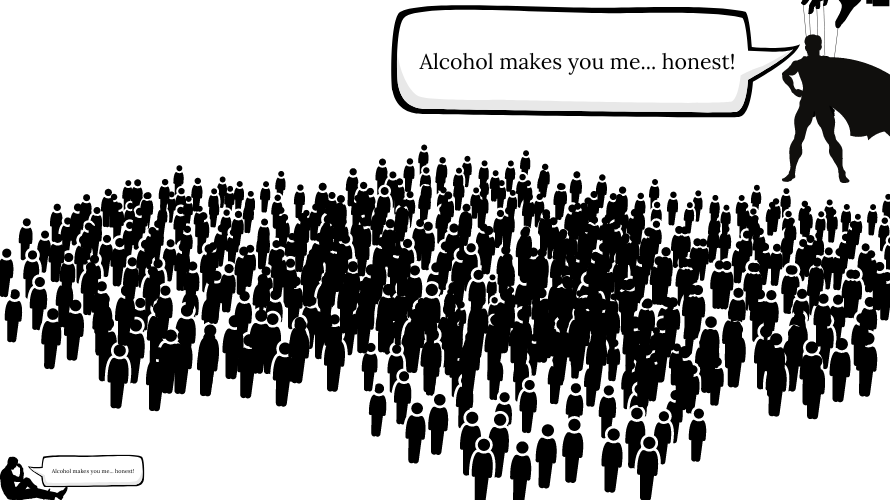
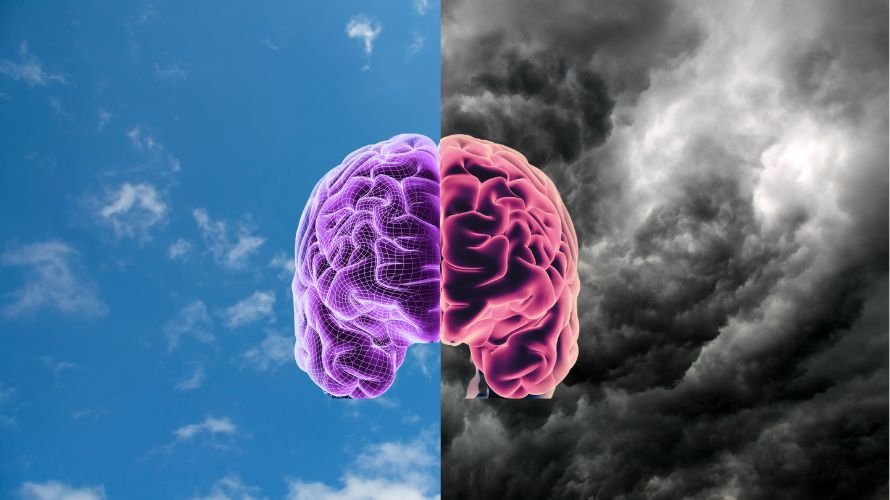
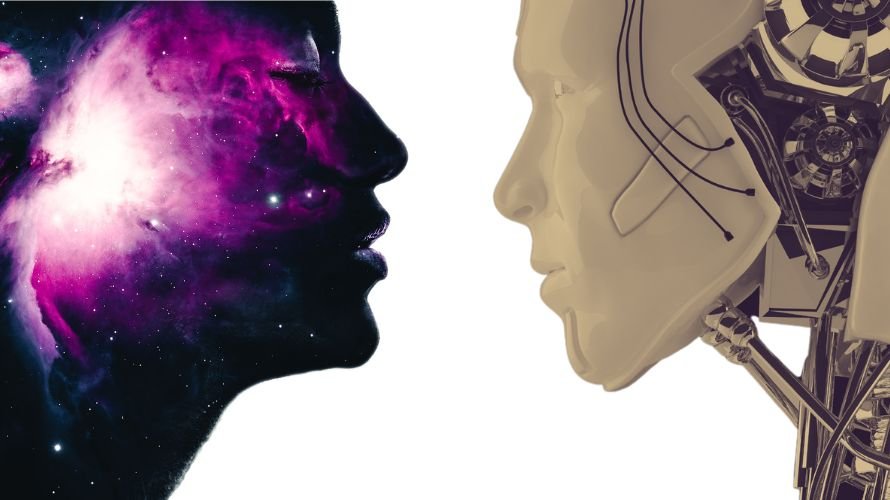
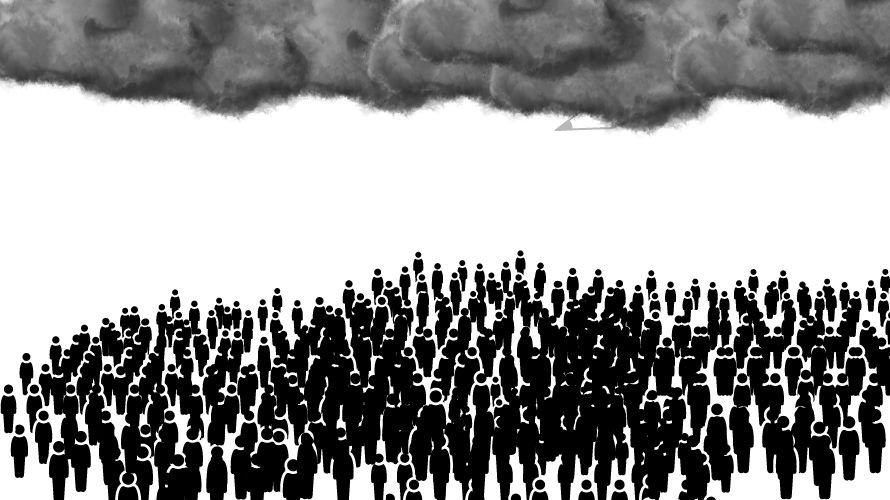
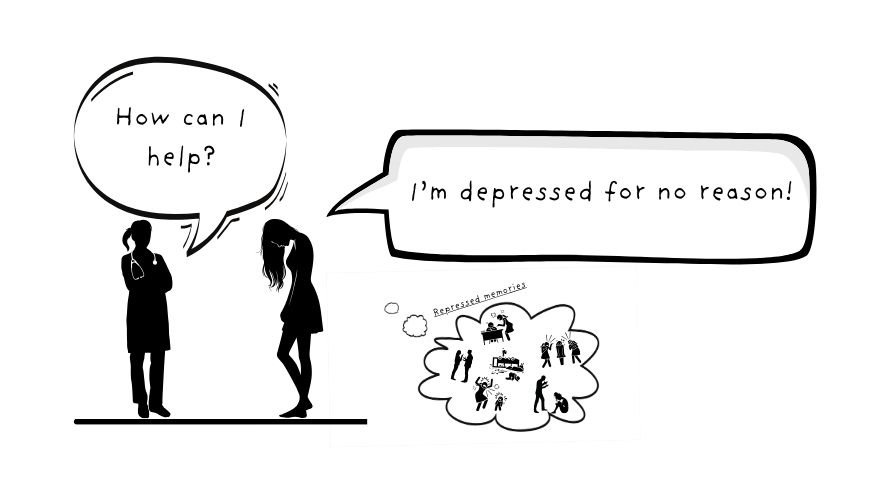
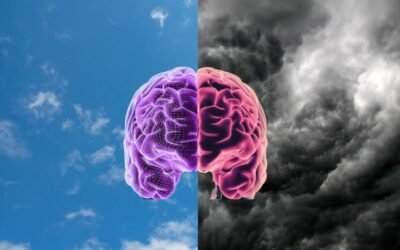

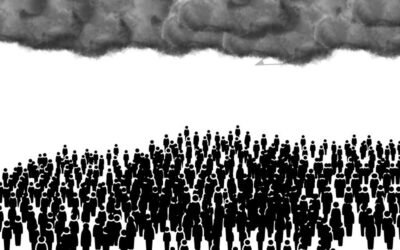
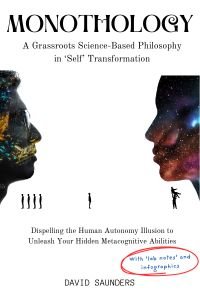
0 Comments